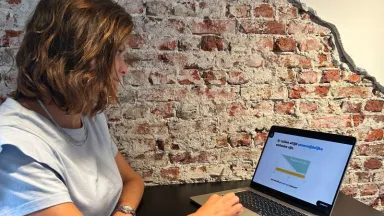2 min. read
·


Already 900+ portfolios built with 300,000+ carbon credits
Use carbon credits immediately
At ecommit, you can purchase carbon credits. These enable climate projects that remove carbon from the air. Financing ensures that current climate projects can continue and, above all, that the number of climate projects will grow significantly. You can easily purchase your carbon credits online, and they are immediately available for use in your business.

Specialist in carbon credits
Ecommit is a specialist in the field of carbon credits. We know how you can use carbon credits in your business operations, closely follow developments in legislation and regulations, and are the go-to party if you want to buy carbon credits.

Carbon emissions
Reducing your company's emissions is an important goal. But what do you do about the carbon emissions that are unavoidable (today)? By contributing to climate projects, you have carbon removed from the atmosphere.

Legislation and regulations
Carbon legislation is complex and constantly evolving. What regulations do you need to comply with? We keep track of developments and explain what the current and upcoming laws mean for your business.

Carbon offsetting
We purchase carbon credits from projects that remove carbon from the air. Whether you want to support the climate or comply with the CSRD, carbon credits will help you achieve your goals.
Why use carbon credits in your business?
Carbon credits are - in addition to reducing carbon - the ideal solution if you want to take immediate action to protect the climate. If your company wishes to reduce its contribution to air pollution, consider investing in climate projects. These projects are essential for removing carbon from the atmosphere and can only be implemented if sufficient funding is available. Carbon credits are also indispensable for achieving net zero. To achieve net zero emissions, you have to remove as much carbon from the air as you emit.
Why choose carbon credits from ecommit?
Ecommit has years of expertise in the field of carbon credits. We know the market and conduct a thorough risk assessment before investing in a climate project. We check the methodology, location, registration, and all other fundamental documentation for each project. You can view all information about your carbon credits and the projects via your own dashboard.
Receive carbon credits immediately or customized proposal
You can easily purchase your carbon credits online. We have carbon credits in stock, and you can use them in your business immediately after purchase. If you have specific requirements regarding the project, such as the type of project and/or location, we can put together a customized portfolio for you. You will then receive a portfolio proposal from us with an accompanying quote.



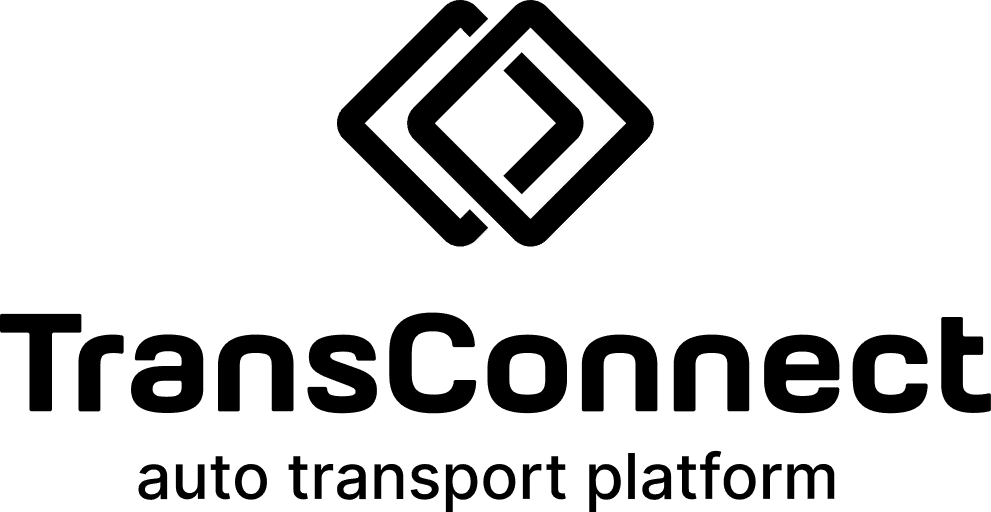


Carbon emissions
What is the problem with carbon emissions?
CO2, or carbon, is a greenhouse gas that naturally occurs in the atmosphere. Along with other greenhouse gases, CO2 helps retain the sun's heat, making life on earth possible. However, scientists have determined that the amount of CO2 in the air is increasing. This rise is mainly due to the burning of oil and gas and the production of fertilizers. Higher carbon emissions contribute to global warming.

Projects
Carbon credits of climate projects
Climate projects contribute to a better living environment. Ecommit collaborates with projects both domestically and internationally that offset carbon emissions. These projects use technology, agriculture, reforestation, and other innovative methods to remove carbon from the air. Before we invest in a project, we conduct thorough research. The project must be certified, and the carbon credits must be registered. This ensures that we provide your company with a reliable and effective way to offset carbon emissions.

Social responsibility
What are the benefits of more sustainable business practices?
A sustainability policy offers your organization numerous advantages. First and foremost, you contribute to solutions for climate issues. There are already many environmental standards and regulations, and these will only increase in the future. Suppliers and partners increasingly expect companies to commit to sustainability. Responsible business practices also lead to engaged employees and attract new talent. Additionally, a strong corporate reputation helps you attract and retain customers.
Careful procurement process
We conduct thorough research before investing in a project. Our procurement team follows a structured procedure. Initially, we assess the project's effectiveness in carbon reduction and/or removal. Next, we evaluate its reliability, considering factors such as the organization behind the project, the country, existing certifications, and numerous other criteria. Once all criteria are met, we finalize the legal matters and purchase a large number of carbon credits. We then offer these carbon credits to companies in any quantity required.

Be on time
Why would you want to buy carbon credits now?
Climate solutions require funding, and carbon credits are the means to achieve this. Financing ensures that current climate projects can be sustained and, above all, that the number of climate projects will grow significantly. By purchasing carbon credits now, both the climate project and your company benefit: the project developer has immediate access to funds for its operations, and you are able to purchase your carbon credits at an attractive price. Will you be needing carbon credits in future years? Buy them now to ensure they are available and affordable. That way, you will always have your own supply of carbon credits.

EU climate target and carbon credits
The European Union has set the following climate target for 2040: a net 90% reduction in carbon emissions, 5% of which is to be achieved through carbon credits. In concrete terms, this means that the EU must reduce carbon emissions by 85% compared to 1990 levels and may use carbon credits for 5%. The carbon credits may be used from 2031 onwards.

Starter package
Trying out carbon credits? Choose the starter package
Are you interested in carbon credits, but are you not sure how they could work for your company? Then choose our carbon credit starter package. For a small amount, you can purchase carbon credits that you can either use immediately to offset part of your company's carbon emissions, or save to use or sell at a later date. You will get access to your own dashboard where you can view your company's carbon offset. Experience what carbon credits can do for your company.
What other customers say
OOS Energy
It is our company policy to offset 15% of our office staff business flights’ carbon emissions. In ecommit we have found a trustworthy partner who ensures that our investment goes to high-quality climate projects.
Cor Selen, CEO
TransConnect B.V.
Ecommit allows us to contribute to real climate solutions. Not only do we offset the carbon emissions of our employees, we also offer carbon offsetting to customers who use our software to schedule their transports.
Maarten Klanderman, CEO
CarCollect
A broad sustainability strategy is at the core of our fast-growing business and carbon offsetting is a key part of it. We offset the total estimated emissions of our company, including emissions of staff and data storage.
Lev van der Eng, CCO
What does offsetting offer your business?
More attractive to partners
Sustainability is becoming increasingly important to partners and suppliers. By purchasing carbon credits of projects that remove carbon from the atmosphere, you demonstrate that your company is actively engaged in sustainability.
Employee engagement
Employees often feel more connected to a sustainable employer. Carbon offsetting also attracts new, talented individuals who resonate with your company's values and principles.
Appealing to customers
Businesses and individuals are becoming more conscious and prefer companies committed to sustainability. Many customers are willing to pay a premium for sustainable products and services.
Added value for products
Carbon credits help you stand out from the competition. Making sustainability a key part of your business adds value to your products or services and gives you an edge in bidding processes.
Crucial for financing
For banks and other financiers, a sustainability plan is highly valuable. Efforts to avoid, reduce, and offset carbon emissions are often a requirement for funding.
Future-oriented image
Sustainable business practices positively impact both the climate and your brand. By purchasing carbon credits, you show that your company is committed to leading and adapting to new developments.
Projects ecommit collaborates with
When you purchase carbon credits through ecommit, you contribute to significant climate projects that remove carbon from the atmosphere or that ensure that less carbon is released into the air. The projects we work with are located both in the Netherlands and abroad. Here are some of the various projects:
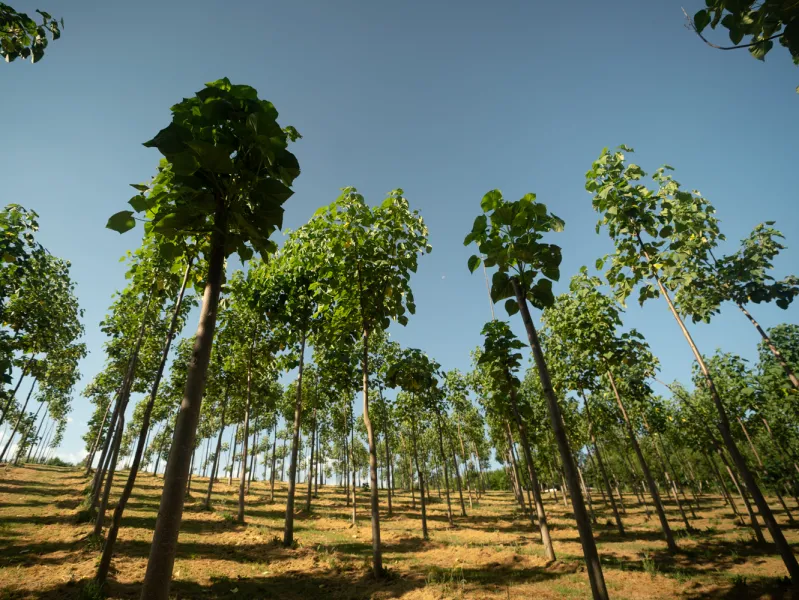
Paulownia Plantations Croatia
This ambitious project in Croatia focuses on the Anna Paulowna tree (Paulownia), a species known for its exceptional carbon absorption capabilities.
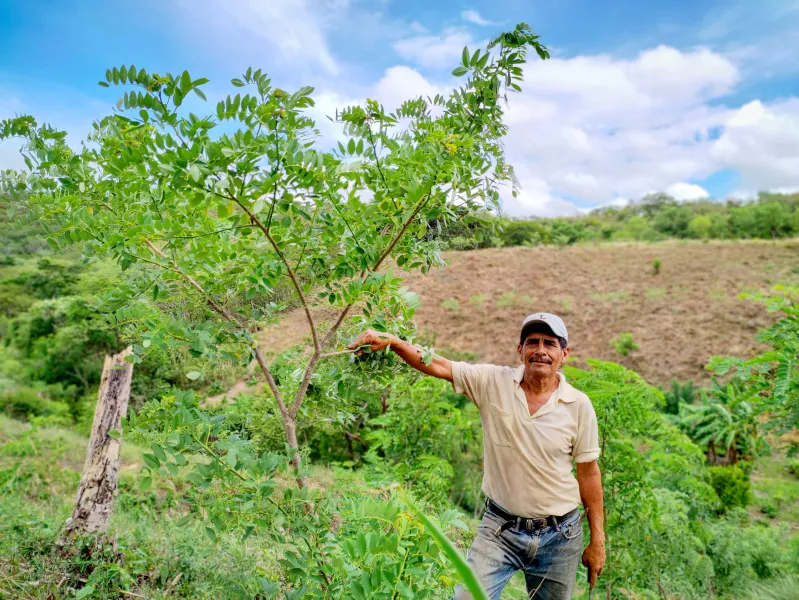
Scolel’te
In the Mayan language Tzeltal, Scolel’te means 'the tree that grows'. This wonderful project in Mexico utilizes reforestation and agroforestry.
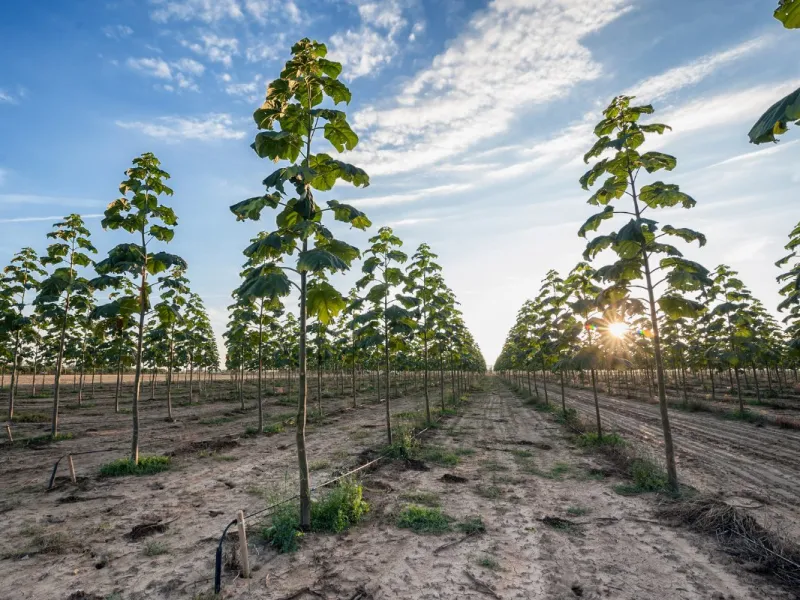
Paulownia Bos Deest
This innovative project in Deest, Netherlands, uses Paulownia trees, which are known for their exceptional carbon absorption capabilities.
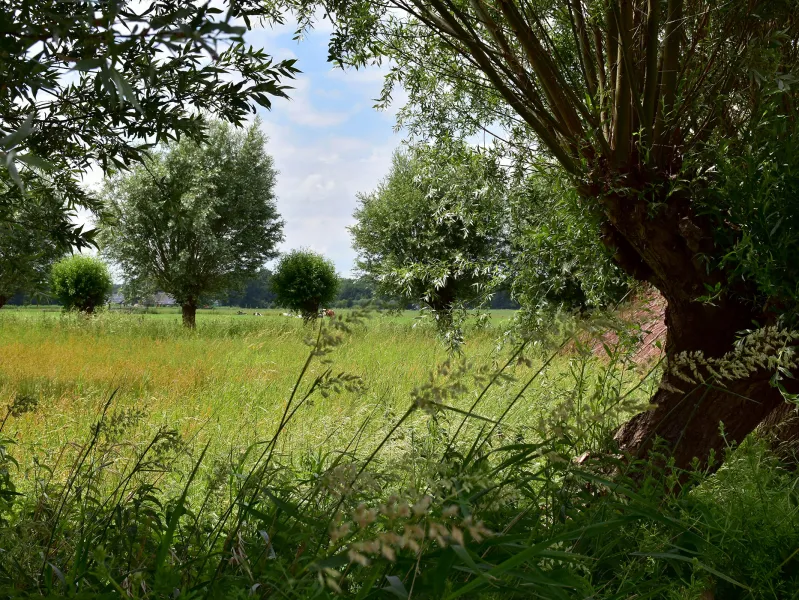
Temporarily sold out
Blijvend Grasland
Blijvend Grasland is a collection of excellent projects in the Netherlands. These projects use grasslands to store carbon in the soil.
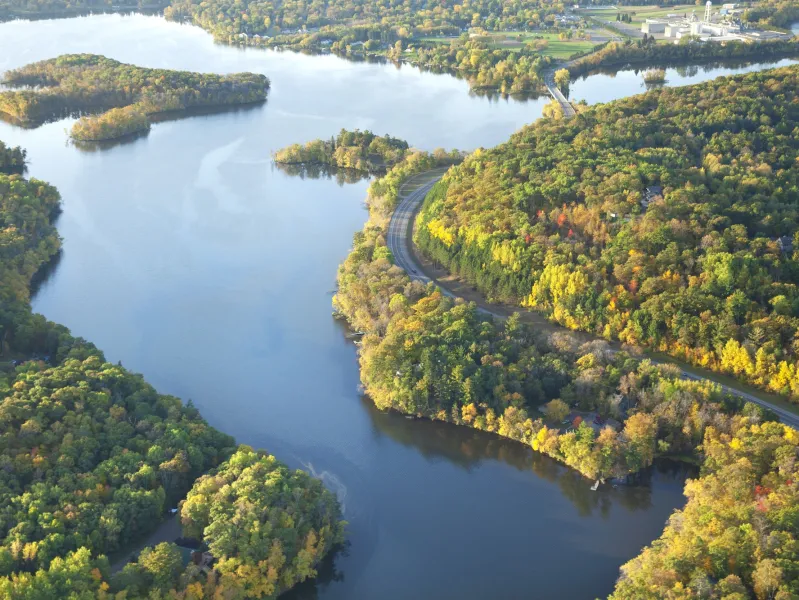
GreenTrees ACRE
GreenTrees encourages individual landowners to plant forests. The trees remove carbon from the air and are a source of income for the owners.
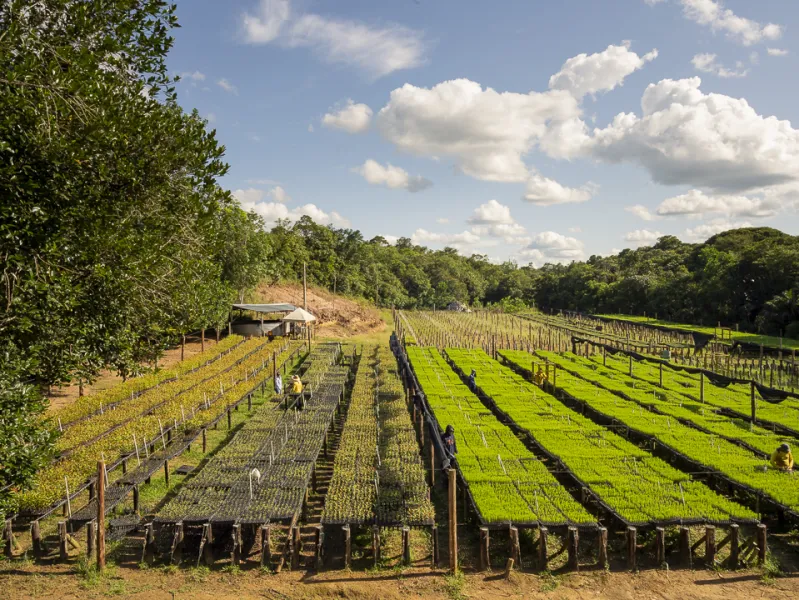
Carbono Rancho Victoria
Where trees were once illegally logged, pines, eucalyptus, and acacias now remove carbon dioxide from the air.
Buying carbon credits: easy to arrange
1. Decide how much you want to invest: choose the amount you want to invest or the number of carbon credits you want to buy.
2. Receive your carbon credits immediately: right after your payment, your carbon credits will be delivered and you will gain access to your dashboard.
3. Manage your carbon credits entirely according to your wishes: decide at any time whether you want to retire them or offer them for sale.
Frequently asked questions about using carbon credits
You can purchase carbon credits via ecommit, the leading B2B platform for carbon credits. By purchasing carbon credits, you are investing in important climate projects that remove carbon from the air. The projects that ecommit collaborates with are located both in the Netherlands and abroad.
Climate projects ensure that CO2 is removed from the air or that less CO2 is released into the air. This is achieved through agriculture, forestry, or reforestation, among other things. A project must meet strict requirements, and independent organizations validate and verify the compensation according to internationally recognized standards. Only after verification can carbon credits be issued by the project organization. During the project's lifetime, checks are carried out to ensure that the targets are being met and that carbon absorption has actually taken place.
Ecommit conducts thorough research before investing in climate projects. Our procurement team assesses the effectiveness of each project's carbon offsetting approach and evaluates reliability. We consider factors such as project location, organization credibility, certifications, and numerous other criteria. Once all criteria are met, we finalize legal matters and buy a large quantity of carbon credits.
There are many different types of climate projects. Each project is designed based on the specific factors that apply to the project location, such as: land area, suitability for certain crops and trees, and so on. There are projects that use agriculture, agroforestry, or reforestation as a means of removing carbon. There are also blue ocean projects that use the opportunities offered by seas and oceans. In biochar projects, organic waste material is converted into biochar, a substance that can store carbon. Direct Air Capture projects involve removing carbon from the air using machines. REDD+ projects combat deforestation and forest degradation.
There are various ways to remove carbon from the atmosphere. What works in which location depends on many factors, such as land area, soil conditions, climate, legislation, and technological developments. In the Netherlands, agroforestry, grassland, seaweed, oysters, and the seabed (collectively known as blue ocean) are natural methods for removing and storing carbon. Removing carbon from the air using machines (Direct Air Capture) is also possible here.
When you purchase carbon credits from ecommit, we register the carbon credits in your company's name. The moment you purchase carbon credits does not have to be the same moment you use them. The act of actually using your carbon credits is called retiring. When you retire your carbon credits (now or in the future), the carbon removal is attributed to your company. Once retired, carbon credits can no longer be used or sold.
Buy your carbon
credits now
Invest in carbon credits before prices rise. This allows you to implement your sustainability strategy while enabling essential climate projects.
Reliable
The carbon credits come from certified, registered projects that guarantee carbon offsetting.
Quick and easy
Purchasing carbon credits is easy. Order online or make an appointment for a customized carbon credit portfolio.
Strategic investment
Carbon credits are an investment and create value for your company. Invest now and stay ahead of price increases.
Flexible
Decide at any time what you want to do with your carbon credits: use them in your business, retain them, and/or offer them for sale.
Stay informed with our blogs
In our blogs, you will find everything you need to know about carbon offsetting. We keep up with legislation, provide the latest news, summarize research findings, and share whitepapers.
2 min. read
·2 min. read
·Questions about addressing carbon emissions?
Do you have a question or do you want more information? Contact us for a free consultation.


